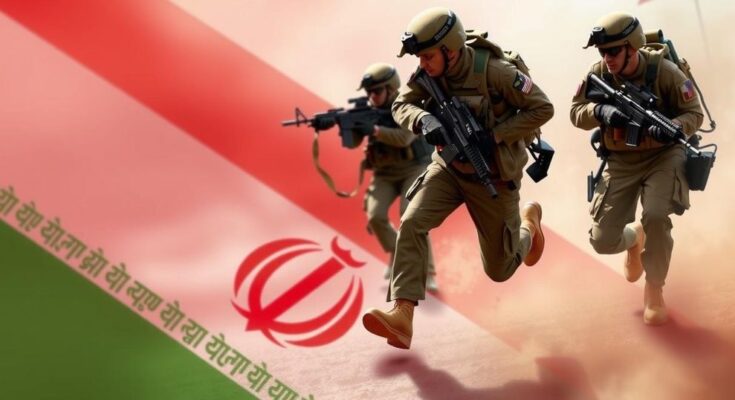Iran’s Supreme Leader, Ali Khamenei, stated the U.S. military presence in Iraq is “illegal,” urging Iraq to resist. Iraqi Prime Minister Al-Sudani, during his visit to Tehran, hoped to strengthen ties while condemning Israeli actions against Gaza and Lebanon, advocating for the Syrian people’s rights and sovereignty.
On Wednesday, Iran’s Supreme Leader, Ali Khamenei, declared the presence of U.S. military forces in Iraq as “illegal” and urged the Iraqi government to resist what he termed as American occupation. Khamenei highlighted the influence of external intervention in the region, particularly in connection with the ongoing events in Syria. In response to these sentiments, Iraqi Prime Minister, Mohammed Shia’ Al-Sudani, conveyed optimism regarding the discussions and agreements reached during his recent visit to Tehran, aiming to enhance bilateral relations.
Prime Minister Al-Sudani also condemned the Israeli actions against Gaza and Lebanon, reaffirming Iraq’s commitment to support the people in these regions and to assist in regional resistance efforts. He reiterated Iraq’s longstanding stance of solidarity with the Syrian populace, advocating for the nation’s sovereignty and the establishment of an inclusive governmental framework. During his one-day visit, Al-Sudani engaged with key Iranian figures, including President Masoud Pezeshkian and Parliament Speaker Mohammad Baqer Qalibaf, to address crucial regional and international topics of joint interest.
The statement by Iran’s Supreme Leader occurs within the context of heightened tensions in the Middle East, where the presence of foreign military forces has been a contentious issue. The U.S. military’s involvement in Iraq has been a point of debate since the 2003 invasion, and this ongoing dialogue reflects the broader geopolitical dynamics at play, particularly regarding Syria and the Israeli-Palestinian conflict. Iraq has sought to navigate its relationships with both Iran and the United States while maintaining its national sovereignty amid external influences.
In conclusion, Khamenei’s remarks underscore Iran’s opposition to U.S. military presence in Iraq and highlight the complexities of regional politics involving foreign interventions. Prime Minister Al-Sudani’s visit to Tehran indicates an ongoing effort to strengthen Iraq’s ties with Iran while addressing regional challenges. As foreign actions continue to shape the dynamics in the Middle East, Iraq’s support for its neighbors, particularly in the face of aggression, remains significant.
Original Source: news.az




